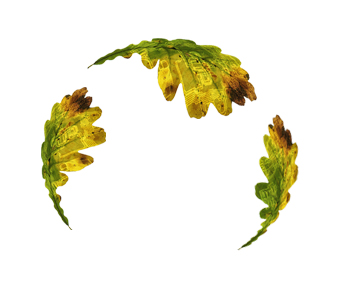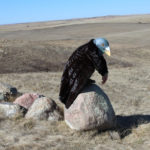At CSSE at the University of Regina last May there was a signature event with a focus on Climate Change, organized by the Canadian Association of Curriculum Studies (CACS). According to the promotional materials, the goal of the sessions was to address critical issues of today’s world in order to engage a non-academic public and to make scholarly ideas accessible to everyday Canadians. I was only able to attend the third part of the planned event, which integrated the arts into public climate change education.
Organizer Paul Zanazanian (McGill) commented that the event “examines the challenges of climate change from several disciplinary perspectives. Our goal is to provoke thought and discussion, and hopefully activism, on this topic that is so important to all of us.” The event was co-organized and performed as well by Kathryn Ricketts (U of Regina).
The Performative art pieces, as a walking tour with durational art-making, took place in the green space that runs along campus, on the banks of Wascana Lake. Kathryn Ricketts presented a dancing embodiment of her bird-character Remington. This anthropomorphized bird wore a fur coat and a rubber pigeon mask, and moving to an internal music, it intermittently gave out all of its birdseed, and then came back looking for food, but by then many of the onlookers had dropped the seeds into the tall grasses under our feet.
Another evocative performance, facilitated by Sarah Schroeter and her third year Drama Education students (Allene Bautista Chernick, Robyn Dyck, Erin Goodpipe, Tara Hanson, & Sara Salazar – U of Regina), invited us into a formal dinner set under the Joe Fafard statue “Mind’s Garden”. Each of the courses of the imaginary meal became more and more confrontational, including the grizzled spine of a deer and ending with the “ashes of our children”. The takeaway of these interactive performances was the sense of provocation, dissonance, and necessity; in tackling climate change education, we must prepare for engaging in pedagogies of discomfort and for preparing our teacher candidates for this new reality.



So, what do you think ?